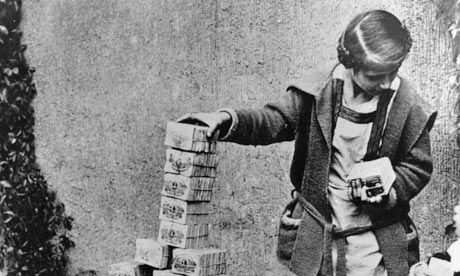Taylor, Frederick. The Downfall of Money: Germany’s Hyperinflation and the Destruction of the Middle Class, Bloomsbury Press, New York, 2013 (416pp. $30)
The story of Germany’s hyperinflation begins in the late summer of 1914 when her young men marched off to glorious war accompanied by the cheering of massed millions, throngs of newly-minted nationalists among which were socialists and Social Democrats who, before the outbreak of hostilities in Serbia, had maintained that workers were first and foremost brothers in the struggle for human rights against the world’s capitalists. This ideal, it was forecast, meant the end of war and the termination of class struggle and, at long last, peace for the cannon-fodder peoples. It was known at the time that war was expensive. It had always been expensive. But, German politicians reasoned, the Reichmark was one of the world’s most powerful and stable currencies, Germany herself a prosperous and growing economy with a small social service sector, the world’s most advanced technological society, a healthy rail system and the Ruhr to provide energy and steel. With the war projected to last only a few months until ultimate German victory, the country could borrow from its own people and from a few international banks to finance the cause. Four years later the happy nationalist throngs had become a starving horde, beset by food shortages, lack of coal to burn for heat, and assaulted by disease and civil disquiet including the threat of revolution. The German treasury was empty and the victorious Allies were demanding reparations that amounted to staggering sums, many times the GDP of Germany when it was prosperous and healthy.
Historian Frederick Taylor is one of the world’s leading authorities on German history, the author of three acclaimed narrative histories, Dresden, The Berlin Wall and most recently, Exorcising Hitler, editor and translator of The Goebbels Diaries:1939-1941, and a fellow of the Royal Historical Society. His latest book, The Downfall of Money, is a solid, deeply-researched, and lively investigation into the post-war breakdown of German civil society represented most basically by the hyperinflation which saw, in a number of stages, the German mark fall from 4.2 to the dollar before the war to a net 4 trillion to the dollar during the turgid autumn of 1923. And while much of the basic history of the Weimar period is well-known (perhaps the most brilliant book about Weimar is Otto Friedrich’s classic Before the Deluge: A Portrait of Berlin in the 1920’s) and represented by dozens of books in the literature, Taylor’s book deserves pride of place because of its advanced research techniques and a sharp focus on inflation from a political and social standpoint.
Try to grasp if you can the notion that Germans came to regard money as a terrorist tool employed against them by their own government. If you had any you were a fool or used it to paper your walls. For one thing, German politicians used inflation to defeat their international creditors, especially the French who had invaded the Ruhr and occupied its factories and coalfields in 1923. For another, the government employed it to avoid paying off its own citizens, who owned bonds. Little wonder that Germans came to despise money and questioned its meaning.
In any inflation, there are winners and losers. Germany’s creditors lost everything while those who owed money had their debt liquidated. Passive investors who owned stocks saw their investments rise in price, while desperate town-dwellers, government workers, middle class professional classes and factory hands mostly were ruined. Rich industrialists and robber barons made out nicely because they could buy foreign assets, borrow money and pay it back in deflated marks, and sell their steel and finished goods in foreign markets for dollars and pounds sterling.
Taylor’s new book is an in-depth look at a social and political world that has enormous consequence for governments today, including our own. For Germany, the downfall of money soon led, with the advent of the Depression, to the downfall of democracy after an attack from the far Right led by the little people who included, most prominently, Adolph Hitler.


